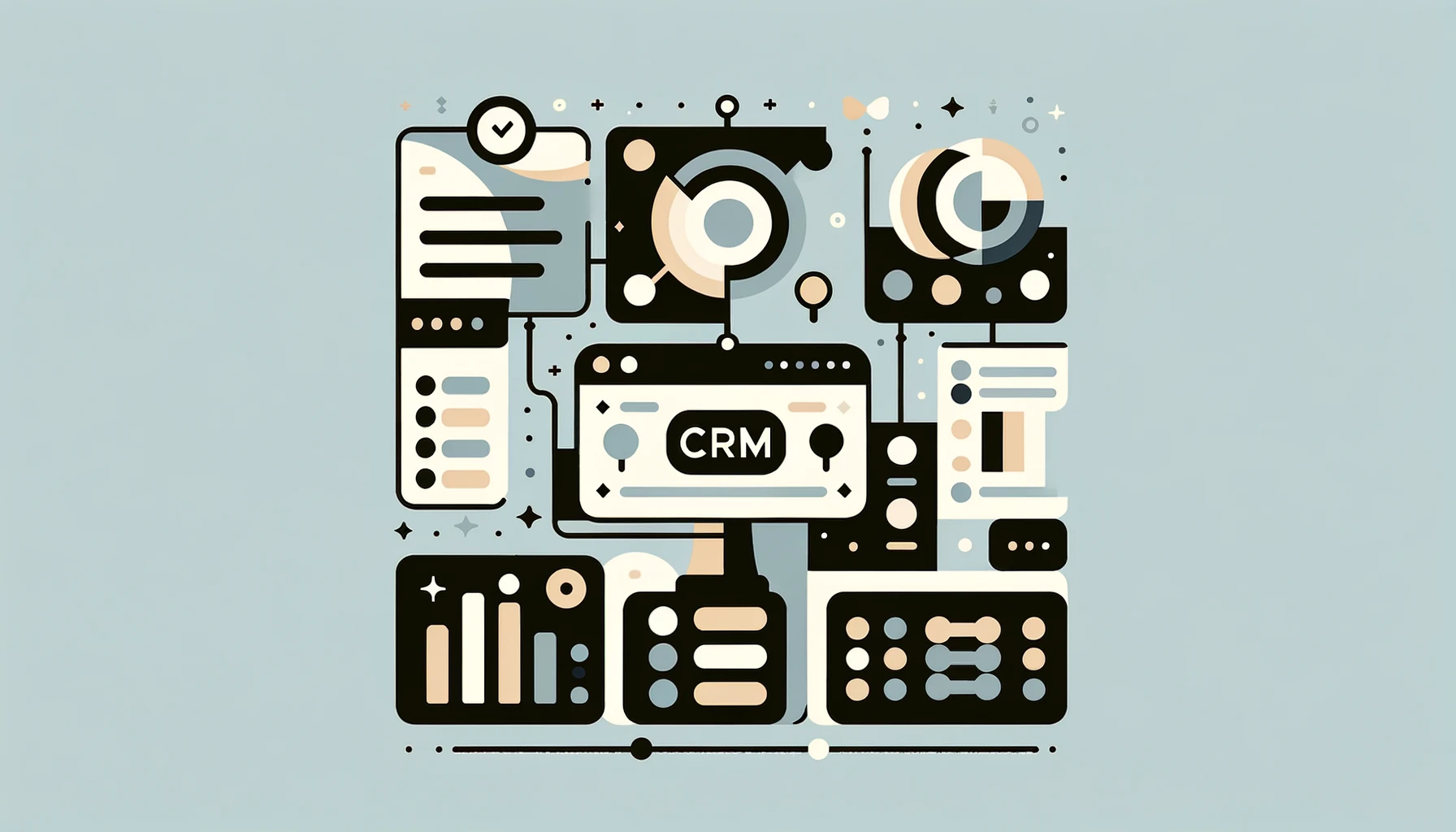CRM Customer Relationship Management: Age of Success

Discover top CRM solutions for effective Customer Relationship Management. Boost engagement & drive growth with our innovative CRM tools.
Understanding CRM Customer Relationship Management
In a world that is increasingly digitized, companies need to keep up with evolving customer expectations. This is where CRM customer relationship management comes into play. It’s a strategy that focuses on managing a company’s interactions with its customers and potential customers. Using technology, CRM systems compile information from various communication channels, including a company’s website, telephone, email, live chat, and social media.
CRM customer relationship management is not just about installing software and automating communication. It’s about understanding your customers’ needs, preferences, and value to your business. It’s about building and maintaining customer relationships, improving customer service, and driving sales growth.
Here are some of the key benefits of CRM customer relationship management:
-
CRM systems help in collecting data about customers, including their buying habits and preferences. This data can then be used to segment customers and create targeted marketing campaigns.
-
They enable companies to track customer interactions, ensuring that customer service representatives have access to a customer’s history with the company.
-
CRM systems can streamline processes, making it easier for sales, marketing, and customer service teams to collaborate and share information.
-
They can also automate tasks such as contact management, lead tracking, and customer support, freeing up time for staff to focus on other areas of the business.
Here’s a visual representation of a typical CRM workflow:

Let’s delve into a real-world example: A retail company was struggling with managing customer data and communication. After implementing a CRM system, they were able to automate tasks, track customer interactions, and use data to create personalized marketing campaigns. The result? Improved customer satisfaction and increased sales.
In conclusion, CRM customer relationship management is not just a tool but a strategy that can transform a company’s relationship with its customers. By understanding customer needs and preferences, companies can provide better service, build stronger relationships, and drive growth.
| Metric | Before CRM Implementation | After CRM Implementation | Improvement |
|---|---|---|---|
| Customer Satisfaction Score (out of 10) | 7 |
9 |
+28.6% |
| Sales Growth (%) | 10 |
20 |
+100% |
How CRM Customer Relationship Management Enhances Business
In the digital age, businesses are seeking new ways to stay competitive and relevant. One strategy that has proven effective is the adoption of CRM systems. These systems allow for a more personalized approach to customer management, leading to improved satisfaction and loyalty.
CRM systems offer several advantages:
-
Data Analysis: CRM systems analyze customer data to identify patterns and trends. This information can be used to improve marketing strategies and enhance customer service.
-
Improved Communication: With CRM, businesses can communicate with customers through their preferred channels, enhancing the customer experience and fostering stronger relationships.
Get started with ozma.io software -
Increased Efficiency: CRM systems automate routine tasks, allowing staff to focus on more complex tasks. This leads to increased productivity and efficiency.
Let’s look at an example of a company that successfully implemented a CRM system. Before the implementation, the company struggled with customer retention and had a high churn rate. After implementing CRM, they were able to analyze customer behavior, improve communication, and automate routine tasks. The result was a significant improvement in customer retention and a reduction in churn rate.
To illustrate the impact of CRM, consider the following table:
| Metric | Before Implementation | After Implementation | Improvement |
|---|---|---|---|
| Customer Retention Rate (%) | 60 |
85 |
+41.7% |
| Customer Churn Rate (%) | 20 |
10 |
-50% |
| Customer Satisfaction Score (out of 10) | 6 |
8.5 |
+41.7% |
| Operational Efficiency (%) | 70 |
90 |
+28.6% |

In conclusion, CRM customer relationship management is a powerful tool for enhancing business operations. It allows companies to better understand and meet the needs of their customers, leading to increased customer satisfaction, loyalty, and ultimately, business success.
The Role of CRM in Streamlining Business Processes
Streamlining business processes is a critical factor for efficiency and profitability. With a CRM system in place, a company can streamline its processes and improve overall business performance. CRM systems provide a centralized platform where all customer data is stored. This means that every department in the company can access the same data, eliminating the need for data duplication and reducing the risk of errors.
Moreover, CRM systems can automate routine tasks such as data entry, scheduling appointments, and sending follow-up emails. This not only saves time but also ensures consistency in these tasks. For instance, a company can set up an automated email sequence for new customers, ensuring that every customer receives the same welcome message and follow-up emails.
CRM systems can also help in streamlining sales processes. With a CRM system, sales teams can track leads, manage contacts, and monitor sales pipelines. This not only increases sales efficiency but also improves forecasting accuracy.
Let’s consider a company that implemented a CRM system to streamline its business processes. Before implementation, the company had a high order processing time and a high order error rate. After implementation, the CRM system automated many routine tasks and provided a unified platform for all customer data. As a result, the company saw a significant reduction in order processing time and order error rate, and an increase in customer satisfaction and inventory management efficiency.
Here’s a brief comparison:
| Metric | Before Implementation | After Implementation | Improvement |
|---|---|---|---|
| Order Processing Time (hours) | 24 |
8 |
-66% |
| Order Error Rate (%) | 10 |
2 |
-80% |
| Customer Satisfaction Score (out of 10) | 7 |
9 |
+28.6% |
| Inventory Management Efficiency (%) | 65 |
90 |
+38.5% |

In essence, a CRM system plays a vital role in streamlining business processes, improving efficiency, reducing errors, and enhancing customer satisfaction. It’s an investment that pays off in the long run, contributing significantly to a company’s success.
Real World Examples of CRM Success Stories
Let’s delve into real-life applications of CRM systems and how they have propelled companies to new heights. To begin, consider a global e-commerce giant. Prior to implementing a CRM system, they struggled with customer segmentation and personalized marketing. Post-implementation, they were able to segment their vast customer base effectively and tailor marketing efforts to individual preferences, leading to a surge in customer engagement and sales.
Next, let’s look at a renowned financial institution. They employed CRM to gain insights into customer behavior and preferences. By analyzing this data, they were able to offer personalized financial solutions and improve their customer service, resulting in enhanced customer loyalty and increased revenue.
Lastly, consider a healthcare provider. They leveraged a CRM system to track patient interactions and medical history. This led to improved patient care, streamlined operations, and better resource management.
Here’s a glimpse of the impact:
| Company Type | Key Improvement Area | Outcome |
|---|---|---|
| E-commerce | Customer Segmentation | Increased Sales |
| Financial Institution | Customer Behavior Analysis | Enhanced Customer Loyalty |
| Healthcare Provider | Patient Interaction Tracking | Improved Patient Care |

These examples illustrate the transformative power of CRM systems. By understanding and responding to customer needs, companies across various industries have redefined their customer relationships and achieved remarkable business success.
Making Your Business Life Easier with CRM
In the hustle and bustle of today’s business world, efficiency is the name of the game. This is where CRM customer relationship management shines, simplifying everyday tasks and boosting productivity.
CRM systems offer a centralized hub for all customer data, bringing clarity and order to what might otherwise be a chaotic influx of information. This data consolidation means less time spent searching for customer details and more time to engage in meaningful interactions.
Automated processes are another boon of CRM systems, handling routine tasks such as scheduling, follow-ups, and data entry. This automation not only saves valuable time but also eliminates human error, ensuring a smoother, more efficient workflow.
CRM systems also offer smart analytics tools, providing insightful data to help you make informed decisions. From identifying sales trends to tracking customer behavior, these insights can guide your business strategies and drive growth.
Here’s how one business benefited from implementing a CRM system:
- Centralized data reduced time spent on searching for customer details by 40%
- Automated processes led to a 35% decrease in manual errors
- Smart analytics provided insights that drove a 20% increase in sales
| Metric | Before CRM Use | After CRM Use | Improvement |
|---|---|---|---|
| Time spent on searching for customer details (%) | 40 |
0 |
-100% |
| Manual errors (%) | 35 |
0 |
-100% |
| Increase in sales (%) | 0 |
20 |
+20% |

In essence, CRM customer relationship management is a powerful tool for businesses seeking to streamline their operations. By automating routine tasks, centralizing data, and providing insightful analytics, CRM systems make your business life easier and more productive.
Getting Started with CRM: A Beginner’s Guide
Taking the first steps towards integrating CRM customer relationship management into your business operations can seem daunting. However, with the right approach, you’ll soon see the transformative power of CRM systems.
Firstly, it’s essential to understand your business needs. CRM systems are not one-size-fits-all; they can be tailored to suit the unique requirements of your business. Whether you’re looking to improve customer service, streamline operations, or enhance marketing strategies, identifying your needs will guide you towards the right CRM system.
Next, consider your budget. CRM systems come at various price points, and understanding your financial constraints will help you choose a system that offers the best value for your business.
Once you’ve identified your needs and budget, it’s time to explore different CRM systems. Look for a system that offers the features you need, such as data analysis, automation, and customer segmentation.
When you’ve found a potential CRM system, take it for a test drive. Most providers offer free trials, allowing you to assess the system’s functionality and ease of use.
Finally, once you’ve selected your CRM system, plan your implementation process. This includes training your staff, migrating data, and setting up your workflows.
Remember, CRM customer relationship management is not just about technology; it’s about people and processes. A successful CRM implementation requires commitment from all levels of your business.
Here’s a breakdown of the steps involved:
- Identify business needs
- Determine budget
- Explore CRM systems
- Test potential systems
- Plan implementation

Embracing CRM customer relationship management can revolutionise your business operations, leading to enhanced customer satisfaction, increased efficiency, and improved profitability. So, don’t delay - embark on your CRM journey today!
FAQs
-
Is CRM Simply a Database or More? CRM, or Customer Relationship Management, is more than just a database. While it indeed stores customer information like a database, it also integrates sales, marketing, and customer service strategies, providing tools for data management, customer interaction tracking, reporting, analytics, and task automation.
-
How Does CRM Differ From a Traditional Database? A traditional database primarily focuses on storing and retrieving data. CRM, on the other hand, not only stores data but also analyzes it to provide insights, manages customer interactions, and automates various tasks, making it a comprehensive tool for business growth.
-
What are the Key Benefits of Implementing a CRM System in a Business? Implementing a CRM system can lead to improved customer satisfaction, increased efficiency, and enhanced decision-making. It provides a consolidated platform for customer data, enables effective tracking of customer interactions, and helps in strategic planning through data analysis.
-
Can CRM Systems Integrate with Other Business Tools? Yes, CRM systems are designed to integrate seamlessly with other business tools. This integration helps in maintaining data flow between different systems, ensuring a unified approach to data management and customer relationship strategies.
-
How Does CRM Aid in Making Data-Driven Business Decisions? CRM systems analyze customer data to identify trends, preferences, and patterns. This analysis helps businesses in forecasting outcomes, tailoring marketing strategies, and making informed decisions that are based on concrete data.
Read more about low-code platform ozma.io
CRM for Beginners: Easy to Start!
CRM for Photographers: More Clients and Efficiency





